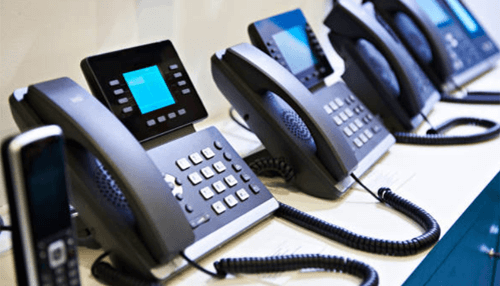Auto dialers have been around for quite some time now. They have been helpful in many fields, especially in telemarketing. As technology progresses, more updates are available to machines like these. For someone who is not entirely familiar with auto dialers and auto dialer laws yet, now might be the time to learn about them, especially if they plan to venture into these fields.
Auto Dialer Laws: Frequently Asked Question and Their Answers
First things first, what are auto dialers? Auto dialers, the shorter term for automatic dialers, are software or an electrical device used for automatically dialing telephone numbers. When it conducts a call and somebody answers in the other line, the auto dialer, depending on its setting, plays a pre-recorded message or connects the call to an agent that will then entertain the receiver.
What are robocalling, interactive voice response, and predictive dialers? You might have also heard of the following terms, robocalling or voice broadcasting. These terms are closely related to the process where the auto dialer plays the assigned pre-recorded message. There is also a type of call termed as an interactive voice response. These are voice broadcasting or robocalling that requests the receiver to answer their queries through pressing buttons on their keypad.
Where do auto dialer laws apply? Auto dialer laws apply to any equipment or software that has the capacity to generate, store, and dial numbers without manual or human help. The numbers can be random, sequential, and can come from a list provided by the company.
Who are the people and institutions behind auto dialer laws? In most cases, the federal government. They are the ones who both come up and enforce these laws.
What is the TCPA? The Telephone Consumer Protection Act is a federal act that draws boundaries and limitations for telemarketers. This act also was the forefather of the Do Not Call (DNC) Registry. Being on the DNC list means you won’t be receiving calls from telemarketers except if it’s by accident.
Do all states and regions share the same set of auto dialer laws? While most of them address the same issues, there might be some differences in auto dialer laws in every state or region. People perceive things differently and sometimes have their way of addressing a similar issue. It’s best to do research and inquire about a state or a region’s auto dialer laws.
Companies and How They Comply and Navigate Through Auto Dialer Laws
In navigating their way through auto dialer laws, companies need to conduct their research and study the basics of this law. Although there may be differences from one country to another, these rules and regulations will most probably address similar things. Issues in telemarketing and auto dialing cannot be that different in the varying countries.
To prevent breaking these laws and receiving lawsuits and charges, companies plan and train their employees in the best way possible. Some companies may incorporate the auto dialer laws in their training or include the critical information in their manuals. There are many ways to avoid extra expenses from being fined due to accidentally or deliberately breaking the law.
- Careful and constant checking – The two fundamental regulatory programs are opt-in and opt-out. Opt-in indicates that you need the receiver’s consent before you can call them; while opt-out is the opposite, you won’t need their consent before getting to call them. If the company’s target state or region applies the opt-out scheme, the company will need to update its call list regularly. If the receiver is under the implementation of the “opt-out system,” the receiver can request the company not to include them in the subsequent calls. The company is required to comply and add this number to their blacklist or DNC list to avoid calling this receiver again. And so, the regular updating of the company’s list.
- Consult the national DNC registries prior to the company’s plan or campaign – By determining the DNCs a considerable period of time before the program or campaign saves the company from unprecedented issues and keeps them away from preventable excess costs.
- Review important information – Regardless of each country’s different rules and regulations, a company needs to be familiar with all of them. A company must be informed of the restrictions to be able to avoid them in the process. The basic rules can include the legally designated time throughout the day when companies are allowed to call and which telemarketing calls are authorized to be picked up, the state’s regulatory scheme or system, and other vital information.
- Identify yourself – It’s a basic rule to properly introduce the company’s name, the agent’s name, what are you (e.g., a telemarketer), and your purpose for calling (e.g., to announce an important milestone for your company’s business, sell a product, update about transactions, etc.) Starting the conversation without thoroughly discussing these essential key points is considered suspicious, especially in telemarketing. The company’s relationship with its potential customers is compromised. Also, as an agent, you could be breaking specific company rules, or on a larger scale, a law intended to address this issue.
- A company must require a live agent rather than a pre-recorded message – It would be best to avoid using robocalls or pre recorded messages. These are usually unwelcomed and, in many cases, ignored. However, it’s understandable that a company might have an emergency. Thus, a time when you need to run to automated calls. These are the only times a company should resort to automated calls, and as much as possible, do not let it occur for more than what you think is acceptable. It would be best to research a state’s rules and regulations as some states prohibit or impose restrictions regarding robocalls or pre-recorded messages.
- Always put customers into consideration – Some customers may agree and give consent to live calls. However, this does not necessarily mean they grant permission to receive robocalls. It’s beneficial to check and confirm with them first.



